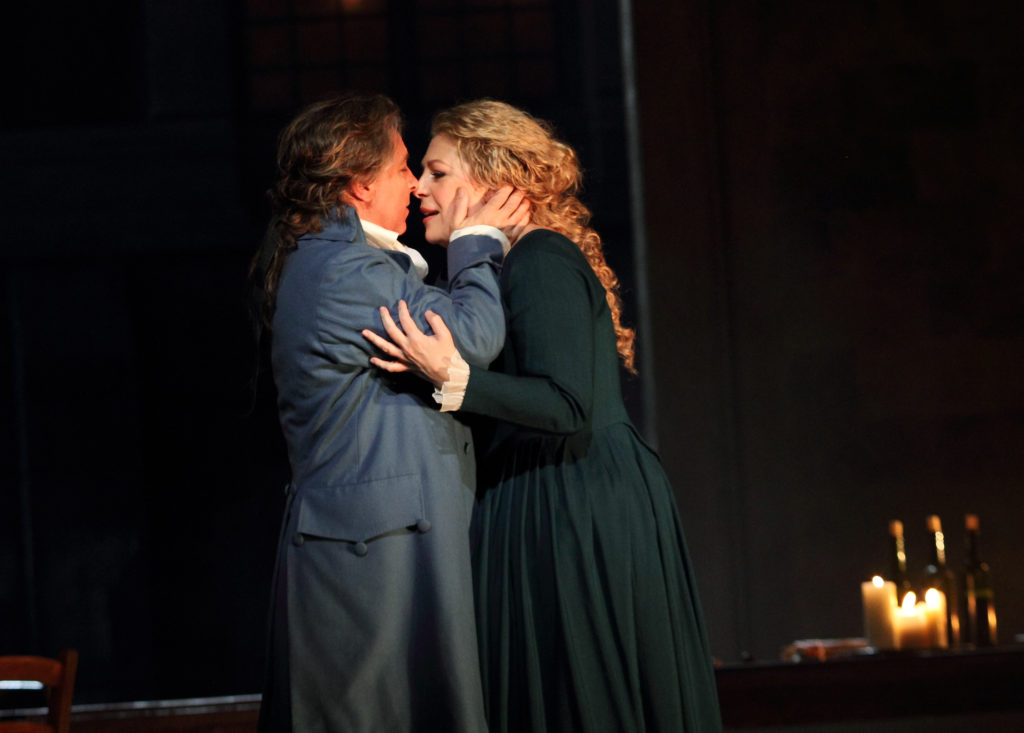
Sondra Radvanovsky as Maddalena di Coigny, ROH 2019, photo by Catherine Ashmore
Reign of Tenor
Review of Andrea Chénier, dramma istorico, music composed by Umberto Giordano, libretto by Luigi Illica, directed by Sir David McVicar, conducted by Daniel Oren, Royal Opera, 20th May 2019, reviewed by Leslie Jones
At Contessa de Coigny’s soirée, poet Andrea Chénier condemns the church’s lack compassion for the poor and by implication that of his fellow guests. They pointedly turn their back on him. The aristocracy are evidently living in a parallel universe, in which manners, fine clothing and persiflage predominate. The performance of a short ballet, followed by a gavotte, symbolises their cocooned and refined existence. But Chénier’s impassioned and improvised declamation does not fall on deaf ears. Footman Carlo Gérard quits his position and takes off his “uniform of shame”. He allows some starving peasants (gilets jaunes?) into the château, predicting the downfall of an “evil race”. And Maddalena de Coigny (soprano Sondra Radvanovsky, on fine form) is no less moved by Chénier’s words. Judging by our clapometer, Gérard (Dimitri Platanias) and Chénier (Roberto Alagna) were not just rivals for Maddalena’s affections but for those of the audience.
As John Snelson notes in the official programme (‘Background and Foreground’) there are striking parallels between Giordano’s Andrea Chénier, first performed in 1896 and Puccini’s contemporaneous oeuvre. Both composers shared the same librettist, Luigi Illica. For the poet Chénier read the artist Cavaradossi. When Maddalena comes to plead for Chénier’s life, Gérard is prepared to force himself upon her. Like Baron Scarpia, he is a slave to “violent passions”. But unlike Scarpia, “he has a conscience and indeed will act upon it”. And Maddalena, frightened and alone after her mother’s murder by the mob, brings to mind Manon Lescaut. But the dubious notion of death as the apotheosis or triumph of love, as articulated by Chénier and Maddalena in Vicino a te s’acqueta, is distinctly Wagnerian.
Commentators consider Giordano’s “handling of French Revolutionary motifs and sentiments…remarkably cogent” (Gregory Dart, official programme, ‘Revolutionary Moments’). And Andrea Chénier is replete with crowd pleasing arias and duets. Two minor quibbles, however. First, the lack of sexual chemistry between Alagna and Radvanovsky. And second, the increasingly tiresome use of graffiti in opera. Yet all in all, a memorable evening.









